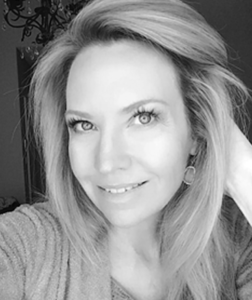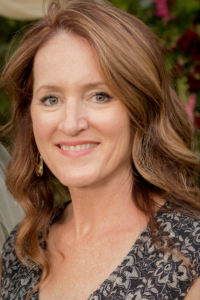Today, Feathered Quill reviewer Kathy Stickles is talking with Chris Baldwin, author of Stand on the Bench, Achilles.
FQ: I would like you to know that, even as one who is not a huge baseball fan, I truly enjoyed reading this book and found it very educational and interesting to read. I have to ask, where did the idea for this story come from?
BALDWIN: Thanks! I’m very happy you enjoyed reading it as I wanted those who were not familiar with baseball to be able to appreciate the story just as much as fans. I have always loved baseball, especially the history of baseball and so much of that history has now taken on mythic qualities and the figures from the past seem larger than life. I was reading some of Elizabeth Vandiver’s work on the classics and thought it would be interesting to tell a sort of mythic story about an old timey baseball team with a bit of Greek tragedy thrown in.
FQ: There is so much information in your story about baseball during the 1920s. While I see from your biography that you are an avid baseball fan, given the time in history that you wrote about, did it require a lot of research to get all the baseball facts correct?
BALDWIN: I did tons of research but honestly still probably not enough and I’m sure expert baseball historians could find flaws. However, while I was researching and writing it my aim was for it to feel authentic. The story and setting are basically my imagination of what baseball was like during that time period. There were a lot of baseball slang terms that I avoided because I felt like readers might be confused but at the same time what I present is a very accurate portrayal of the sport as it would have been played in the early part of the 20th century.
FQ: As a follow-up to my previous question, what surprised you the most about baseball in the 1920s? What one thing would you like to tell the casual fan about that time period in baseball that you think they'd love to learn?
BALDWIN: The cool thing about sports history is that many sports as we recognize them now were so different in the past, particularly baseball. I think that I zeroed in on this time period in the sport’s history because it was undergoing a change the same as the country was undergoing many changes. The strategy was shifting from a sort of small ball game that favored contact hitting and base running to a game more centered on getting home runs or powerful shots deep into the outfield. Baseball is so American and as our country evolved so too did the sport. Here, in my story, it is no longer in its infancy and so it is becoming its own thing and growing and changing with the country. I often wonder if the players changed the game or if the fans did. Those big hits and home runs meant more excitement which meant more tickets sold but at the same time a bit of the original style of play was lost in this process.
FQ: I felt that the characters in the book were very well-developed, and the reader really feels like they get to know each and every one of them. I know that I ended up with a particular favorite in Red. Do you have a favorite among all of them after writing their “story?”

BALDWIN: I have a soft spot for Patrick Klee. Here is this talented young man with all the physical gifts required of a great pitcher but he has a flaw in his mind that makes him get anxious and lose focus each time he pitches. He doesn’t enjoy the game but instead plays it out of obligation due to his skill. I think when it comes to sports people often think the great players are great because of their athleticism and natural abilities but many of the greatest athletes, be it Michael Jordan or Tom Brady, become great because of their mindset. I also love George, he is a great comic relief and was very fun to write. Lastly I should mention Williams. After all he is the player this story centers on. It will always be his story and he represents so much about America and about how those who have sacrificed so much for our country can be overlooked because of their social standing or background.
FQ: There are so many very interesting characters in the story. Are there any characters in the story that you based on someone you know, or are they all the inventions of an excellent writer?
BALDWIN: I can’t say for certain that any of the characters are based on people I know. I have met many people in my life partly because I worked as a reporter for a few years after graduating from university. I think the people we meet, especially the really memorable ones, stay with us and as a writer those people have no doubt affected my writing when it comes to characters. How much they have had an effect I cannot say. A lot of the characters are also influenced by baseball archetypes. Slovenly catcher, hotheaded shortstop, aged pitcher past his prime, and even Red the old-fashioned and crusty manager. Red was actually a little bit influenced by Ty Cobb, an old baseball player. There were also some influences from classic literature as well.
FQ: I think that this book is probably just the first of many from you...do you have any idea what you will be writing about next? Will you do another baseball book or maybe tackle a different sport?
BALDWIN: I think I will take a break from writing about sports. I kind of feel like I wrung all the ideas about baseball I could out of this story. Right now I am working on the early stages of writing a western. I like the idea of taking an old genre and infusing it with more modern themes and ideas.
FQ: As a debut author, do you have any advice for other writers out there who are working on their first book and trying to break into the industry?
BALDWIN: I would say to just keep writing and have confidence. The more you write the better you will get! I wasn’t able to get any major publishers to even read my book but deep down I knew it was worth putting out there so I found an editor and she helped me a lot. I would say that if you have finished a book and you know that it is good just get it out there any way you can because in time it will find readers who appreciate it. And always always write for yourself and no one else. If you like what you’re writing don’t worry about whether or not others will like it. Just put down on the page what you want to put there and the rest will follow.
FQ: Given your interest in baseball, I have to ask...do you play the game in your spare time, or do you have any other sports or hobbies that you really enjoy?
BALDWIN: I’m too old (33) to play baseball although I think it would be fun to join an amateur league here in Japan. My hobbies are mostly reading and writing but I also love traveling. However I think sports are important for young people because they help them grow and learn skills like teamwork, the importance of hard work, and they build confidence. There are many types of sports from chess to dancing so I think there is really something for everyone. One thing my story does show is that sports can bring people from all walks of life together.
FQ: I see from your biography that you live in Japan and I know that baseball has a huge following there. Do Japanese fans of the sport closely follow the US game/players or are they solely interested in the Japanese players/games? Do you see differences in the fans and/or sport between the two countries?
BALDWIN: Japanese fans love the MLB and follow Japanese players closely. Shohei Ohtani is a national hero here but so are others like Yu Darvish and Ichiro. However they do have their own league and tend to be more familiar with the players and teams within it. There are definitely differences in the sport and its fans. It’s cool because even if I cannot speak much Japanese or am not so familiar with their popular culture I can still strike up a conversation with Japanese people about baseball or about someone like Ohtani.
FQ: I was a Russian double major in college (language and politics), So I have to ask - you note you have a love of Russian literature and films. Would you share with us your favorite Russian author(s) and films?
BALDWIN: Of course! I love Tarkovsky’s movies especially Andrei Rublev, Mirror, and Stalker. My favorite Russian movie is Konstantine Lopushansky’s Letters from a Deadman (sometimes called Dead Man’s Letters). It’s very bleak like so much Russian cinema but it is also very beautiful and is surprisingly kind of a Christmas movie.
For literature I like The Master and Margarita by Mikhail Bulgakov (sp?), and I love the mystery novels of Boris Akunin. Sometime I would like to try to write a really good mystery.
But my favorite Russian writer is Victor Pelevin, particularly the books Amon Ra, Chapayev and Void, and Generation P.His books are satirical looks at post Soviet Russia and they are very interesting, poignant, and often quite funny. In fact I wrote a manuscript for a sort of American remake of Generation P. Not sure if it will ever see the light of day but that goes to show how much I like his work.
















